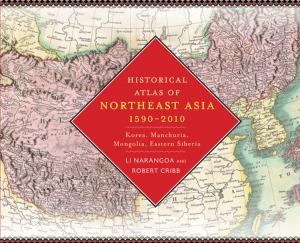The Cinema of Béla Tarr
The Circle Closes
Nonfiction, Entertainment, Film, History & Criticism, Performing Arts| Author: | András Kovács | ISBN: | 9780231850377 |
| Publisher: | Columbia University Press | Publication: | May 21, 2013 |
| Imprint: | WallFlower Press | Language: | English |
| Author: | András Kovács |
| ISBN: | 9780231850377 |
| Publisher: | Columbia University Press |
| Publication: | May 21, 2013 |
| Imprint: | WallFlower Press |
| Language: | English |
The Cinema of Béla Tarr is a critical analysis of the work of Hungary's most prominent and internationally best known film director, written by a scholar who has followed Bela Tarr's career through a close personal and professional relationship for more than twenty-five years. András Bálint Kovács traces the development of Tarr's themes, characters, and style, showing that almost all of his major stylistic and narrative innovations were already present in his early films and that through a conscious and meticulous recombination of and experimentation with these elements, Tarr arrived at his unique style. The significance of these films is that, beyond their aesthetic and historical value, they provide the most powerful vision of an entire region and its historical situation. Tarr's films express, in their universalistic language, the shared feelings of millions of Eastern Europeans.
The Cinema of Béla Tarr is a critical analysis of the work of Hungary's most prominent and internationally best known film director, written by a scholar who has followed Bela Tarr's career through a close personal and professional relationship for more than twenty-five years. András Bálint Kovács traces the development of Tarr's themes, characters, and style, showing that almost all of his major stylistic and narrative innovations were already present in his early films and that through a conscious and meticulous recombination of and experimentation with these elements, Tarr arrived at his unique style. The significance of these films is that, beyond their aesthetic and historical value, they provide the most powerful vision of an entire region and its historical situation. Tarr's films express, in their universalistic language, the shared feelings of millions of Eastern Europeans.















